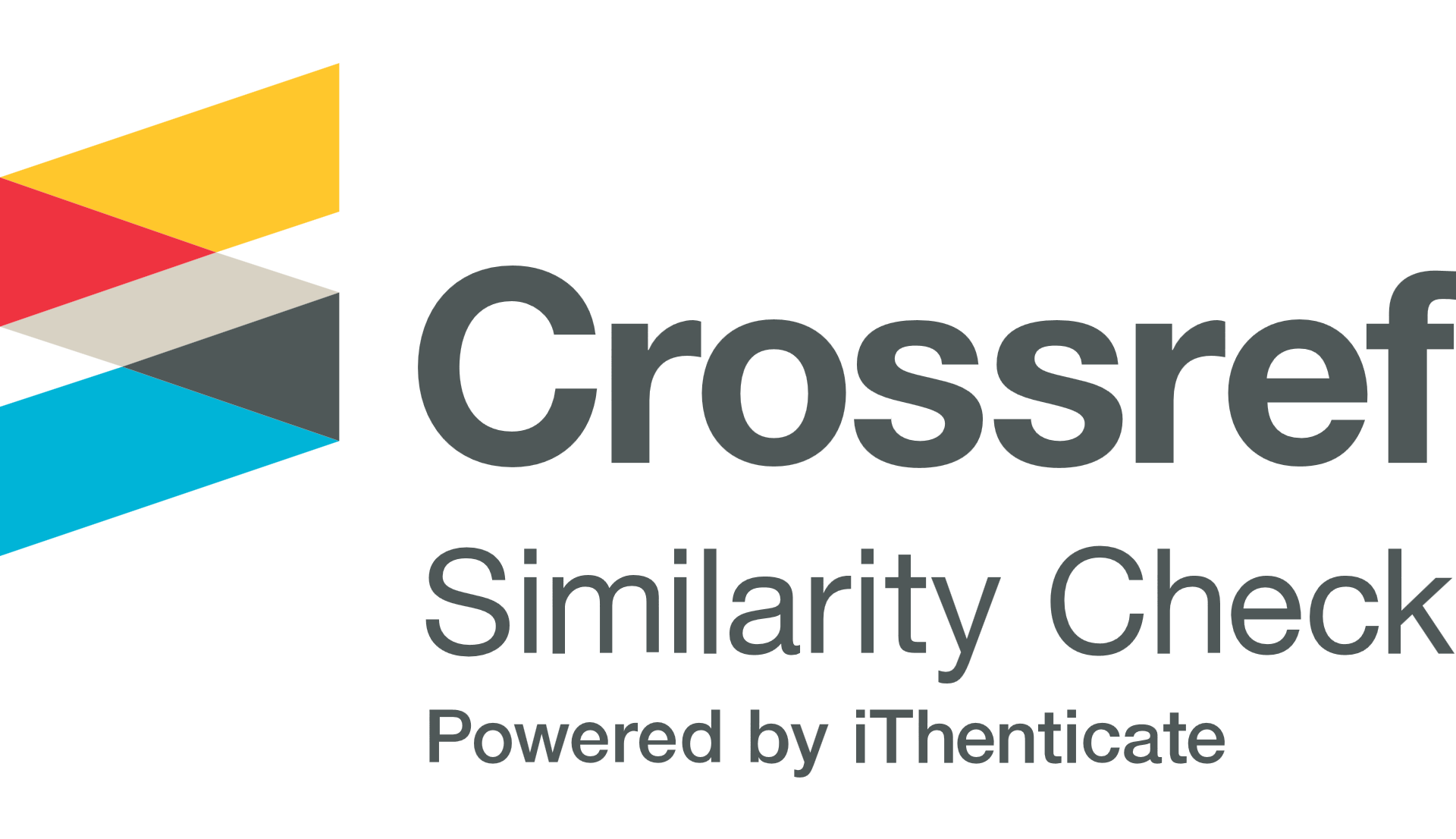Pengaruh Workload dan Self-Motivation Terhadap Kepuasan dan Kinerja Mahasiswa Selama Pandemi Covid-19
DOI:
https://doi.org/10.37823/insight.v4i2.239Keywords:
workload, self-motivation, kepuasan, kinerjaAbstract
Pandemi Covid-19 menyebabkan perubahan cara pemebelajaran dari luring menjadi daring. Perubahan ini memberi dampak positif dan negatif yang dapat mempengaruhi kepuasan dan kinerja mahasiswa. Penelitian ini mengambil variabel workload dan self-motivation sebagai prediktor kepuasan dan kinerja mahasiswa selama menjalani proses pembelajaran daring. Pengumpulan data menggunakan metode survey dengan kuesioner melalui google form. Adapun responden dalam penelitian ini adalah 141 mahasiswa yang menjalani proses pembelajaran daring. Data yang terkumpul dianalisis menggunakan uji validitas, uji reliabiltas, dan uji regresi. Hasil penelitian menunjukkan bahwa workload berpengaruh negative terhadap kepuasan namun tidak berpengaruh signifikan terhadap kinerja mahasiswa. Self-motivation berpengaruh positif terhadap kepuasan dan kinerja mahasiswa.
References
Kementerian Pendidikan dan Kebudayaan, “Mendikbud Terbitkan SE tentang Pelaksanaan Pendidikan dalam Masa Darurat Covid-19,” 2020. [Online]. Available: kemdikbud.go.id
N. Johnson, G. Veletsianos, and J. Seaman, “U.S. faculty and administrators’ experiences and approaches in the early weeks of the COVID-19 pandemic,” Online Learn. J., vol. 24, no. 2, pp. 6–21, 2020, doi: 10.24059/olj.v24i2.2285.
K. Mukhtar, K. Javed, M. Arooj, and A. Sethi, “Advantages, limitations and recommendations for online learning during covid-19 pandemic era,” Pakistan J. Med. Sci., vol. 36, no. COVID19-S4, pp. S27–S31, 2020, doi: 10.12669/pjms.36.COVID19-S4.2785.
C. Wenjun et al., “The psychological impact of the COVID-19 epidemic on college students in China,” Psychiatry Res., vol. 287, no. March 20, 2020, pp. 1–5, 2020, [Online]. Available: http://www.embase.com/search/results?subaction=viewrecord&from=export&id=L2005406993%0Ahttp://dx.doi.org/10.1016/j.psychres.2020.112934
E. M. Onyema, “Impact of Coronavirus Pandemic on Education,” J. Educ. Pract., vol. 11, no. 13, pp. 108–121, 2020, doi: 10.7176/jep/11-13-12.
Ž. Bojović, P. D. Bojović, D. Vujošević, and J. Šuh, “Education in times of crisis: Rapid transition to distance learning,” Comput. Appl. Eng. Educ., vol. 28, no. 6, pp. 1467–1489, 2020, doi: 10.1002/cae.22318.
A. J. Moreno-Guerrero, I. Aznar-Díaz, P. Cáceres-Reche, and S. Alonso-García, “E-learning in the teaching of mathematics: An educational experience in adult high school,” Mathematics, vol. 8, no. 5, pp. 1–16, 2020, doi: 10.3390/MATH8050840.
R. Pangaribuan, “DAMPAK POSITIF PANDEMI COVID-19 TERHADAP DUNIA PENDIDIKAN – STIT AL-KIFAYAH RIAU,” https://www.stit-alkifayahriau.ac.id/dampak-positif-pandemi-covid-19-terhadap-dunia-pendidikan/, Pekanbaru, 2021. [Online]. Available: https://www.stit-alkifayahriau.ac.id/dampak-positif-pandemi-covid-19-terhadap-dunia-pendidikan/
W. M. Al-Rahmi et al., “Use of E-Learning by University Students in Malaysian Higher Educational Institutions: A Case in Universiti Teknologi Malaysia,” IEEE Access, vol. 6, pp. 14268–14276, 2018, doi: 10.1109/ACCESS.2018.2802325.
S. Raime, M. Farid Shamsudin, R. A. Hashim, and N. A. Rahman, “Students’ Self-Motivation and Online Learning Students’ Satisfaction among UNITAR College Students,” Asian J. Res. Educ. Soc. Sci., vol. 2, no. 3, pp. 62–71, 2020, [Online]. Available: http://myjms.moe.gov.my/index.php/ajress
S. Tan, F. Chuah, and H. Ting, “Factors affecting university students ’ satisfaction on online learning system [ Theme A – Virtual Learning Environment and Technology ] [ Oral Presentations ] Title : Factors affecting university students ’ sati sfaction on online learning system,” Tarc Int. Conf. Learn. Teach. 2016, no. October, 2016.
M. Mayasari and A. Gustomo, “Workload Analysis on Cv.Saswco Perdana,” J. Bus. Manag., vol. 3, no. 6, pp. 673–681, 2010.
S. N. Shah, S. S. H., Jaffari, A. R., Aziz, J., Ejaz, W., Ul-Haq, I., & Raza, “Workload and Performance of Employees,” Interdiscliplinary J. Contemp. Res. Bus., vol. 3, no. 5, pp. 256–267, 2011.
M. A. K. Basuony, R. EmadEldeen, M. Farghaly, N. El-Bassiouny, and E. K. A. Mohamed, “The factors affecting student satisfaction with online education during the COVID-19 pandemic: an empirical study of an emerging Muslim country,” J. Islam. Mark., vol. 12, no. 3, pp. 631–648, 2020, doi: 10.1108/JIMA-09-2020-0301.
G. Giorgi et al., “Work-related stress in the banking sector: A review of incidence, correlated factors, and major consequences,” Front. Psychol., vol. 8, no. DEC, pp. 1–17, 2017, doi: 10.3389/fpsyg.2017.02166.
N. Eom, S.B. and Ashill, “The determinants of students’ perceived learning outcomes and satisfaction in university online education: an empirical investigation,” Decis. Sci. J. Innov. Educ., vol. 4, no. 2, pp. 215–235, 2006, doi: 10.1109/CONMEDIA46929.2019.8981813.
K. Frankola, “‘Why online learner drop out,’” Workforce, vol. 80, pp. 53–60, 2001.
C. Tan, “The impact of COVID-19 on student motivation, community of inquiry and learning performance,” Asian Educ. Dev. Stud., vol. 10, no. 2, pp. 308–321, 2021, doi: 10.1108/AEDS-05-2020-0084.
W. Puriwat and S. Tripopsakul, “The impact of e-learning quality on student satisfaction and continuance usage intentions during covid-19,” Int. J. Inf. Educ. Technol., vol. 11, no. 8, pp. 368–374, 2021, doi: 10.18178/ijiet.2021.11.8.1536.
V. A. Thurmond, K. Wambach, H. R. Connors, and B. B. Frey, “Evaluation of Student Satisfaction: Determining the Impact of a Web-Based Environment by Controlling for Student Characteristics,” Int. J. Phytoremediation, vol. 21, no. 1, pp. 169–190, 2002, doi: 10.1207/S15389286AJDE1603_4.
H. C. Wei and C. Chou, “Online learning performance and satisfaction: do perceptions and readiness matter?,” Distance Educ., vol. 41, no. 1, pp. 48–69, 2020, doi: 10.1080/01587919.2020.1724768.
R. Sebastianelli, C. Swift, and N. Tamimi, “Factors Affecting Perceived Learning, Satisfaction, and Quality in the Online MBA: A Structural Equation Modeling Approach,” J. Educ. Bus., vol. 90, no. 6, pp. 296–305, 2015, doi: 10.1080/08832323.2015.1038979.
M. J. Basson and S. Rothmann, “Antecedents of basic psychological need satisfaction of pharmacy students: The role of peers, family, lecturers and workload,” Res. Soc. Adm. Pharm., vol. 14, no. 4, pp. 372–381, 2018, doi: 10.1016/j.sapharm.2017.04.015.
K. M. Y. Law, S. Geng, and T. Li, “Student enrollment, motivation and learning performance in a blended learning environment: The mediating effects of social, teaching, and cognitive presence,” Comput. Educ., vol. 136, pp. 1–12, 2019, doi: 10.1016/j.compedu.2019.02.021.
E. Hernesniemi, H. Raty, K. Kasanen, X. Cheng, J. Hong, and M. Kuittinen, “Perception of Workload and its Relation to Perceived Teaching and Learning Environments among Finnish and Chinese University Students,” Int. J. High. Educ., vol. 6, no. 5, p. 42, 2017, doi: 10.5430/ijhe.v6n5p42.
T. Partovi and M. R. Razavi, “The effect of game-based learning on academic achievement motivation of elementary school students,” Learn. Motiv., vol. 68, no. June, p. 101592, 2019, doi: 10.1016/j.lmot.2019.101592.
K. M. Y. Law, V. C. S. Lee, and Y. T. Yu, “Learning motivation in e-learning facilitated computer programming courses,” Comput. Educ., vol. 55, no. 1, pp. 218–228, 2010, doi: 10.1016/j.compedu.2010.01.007.
K. M. Y. Law and K. Breznik, “Impacts of innovativeness and attitude on entrepreneurial intention: among engineering and non-engineering students,” Int. J. Technol. Des. Educ., vol. 27, no. 4, pp. 683–700, 2017, doi: 10.1007/s10798-016-9373-0.
K. M. Y. Law and S. Geng, “How innovativeness and handedness affect learning performance of engineering students?,” Int. J. Technol. Des. Educ., vol. 29, no. 4, pp. 897–914, 2019, doi: 10.1007/s10798-018-9462-3.
S. C. Ngan and K. M. Y. Law, “Exploratory Network Analysis of Learning Motivation Factors in e-Learning Facilitated Computer Programming Courses,” Asia-Pacific Educ. Res., vol. 24, no. 4, pp. 705–717, 2015, doi: 10.1007/s40299-014-0223-0.
X. Geng, Y. Xu, L. Chen, H. Ogata, A. Shimada, and M. Yamada, “Learning analytics of the relationships among learning behaviors, learning performance, and motivation,” Proc. - IEEE 20th Int. Conf. Adv. Learn. Technol. ICALT 2020, no. July, pp. 161–163, 2020, doi: 10.1109/ICALT49669.2020.00054.
W. Elshami, M. H. Taha, M. Abuzaid, C. Saravanan, S. Al Kawas, and M. E. Abdalla, “Satisfaction with online learning in the new normal: perspective of students and faculty at medical and health sciences colleges,” Med. Educ. Online, vol. 26, no. 1, 2021, doi: 10.1080/10872981.2021.1920090.
R. E. Hair, J. F., Black, W. C., Babin, B. J., & Anderson, Multivariate Data Analysis. Cengage Learning, 2019.
Downloads
Published
How to Cite
Issue
Section
License
Copyright (c) 2022 Journal of Information System,Graphics, Hospitality and Technology

This work is licensed under a Creative Commons Attribution-ShareAlike 4.0 International License.
















.png)
.png)






